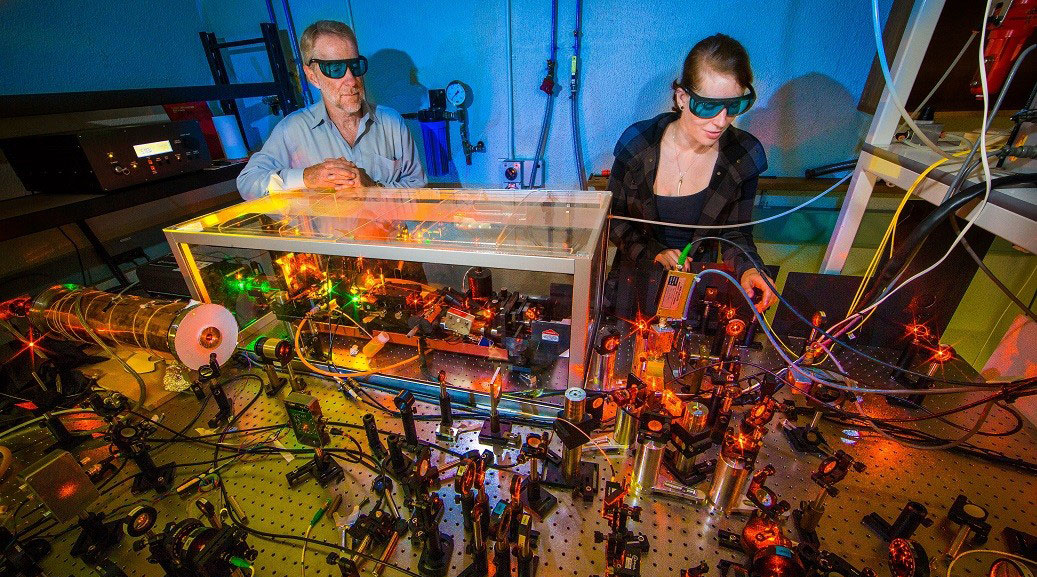Let there be light
Light is so important to our life the United Nations says you can't live without it. AMANDA COX investigates in the latest ANU Reporter.
Imagine a world without light-based technologies. We would not be able to use high-speed internet and fibre-optic telecommunications, scan items at a supermarket or watch TV. And scientists would not be able to map the cosmos or view inside cells with microscopes.
In fact, light is so important to modern life that 2015 has been declared the International Year of Light by the United Nations.
As Chair of the Australian section of this celebration, ANU laser physicist Professor Ken Baldwin says civilisations have been fascinated by light for millennia.
"Contributions to our knowledge of light go back thousands of years from early works in optical technology all the way to modern inventions such as the laser," he says.
The eleventh century Islamic scientist Al-Hasan Ibn al-Haytham was the first to study and document early optical instruments but it wasn't until the refinement of the telescope by Galileo in the seventeenth century that humans began to drastically reassess their place in the cosmos.
"Light has given us a window on the world that we never had previously," Baldwin says.
"Not only can we use it to see different things, but with the invention of the microscope and the telescope we can now understand how things work."
While the science of light underpins many technologies, the most profound impact light has on our lives is as the primary energy source for virtually all organisms on Earth.
"Plants use pigments to absorb sunlight and can transfer this energy into chemical energy in the bond of a molecule," says Professor John Evans, Chief Investigator of the ARC Centre of Excellence for Translational Photosynthesis at ANU.
Download our free ANU Reporter app to continue reading this article.
Each new edition will automatically download to your Newsstand.
Don't have a tablet or an Android phone?
Subscribe to receive the next print edition of ANU Reporter.

